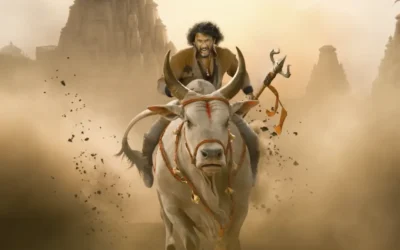“The bitterest thing in today’s sorrow is the memory of yesterday’s joy,” wrote Kahlil Gibran. But to let go is easier said than done. It is one of the most challenging things to do. Material objects metamorphose into immaterial objects sooner or later. Ironically, it is not the objects themselves but our feelings, emotions, and memories tied to them that make it painful to let go.
Letting go doesn’t just mean getting rid of things. The real problem comes when our possessions turn into obsessions. A pile of clothes we never wear, old gadgets that no longer work, chipped cups, or books we’ll never read—all these things not only collect dust and create clutter, but also tie us to moments that have already passed. We get trapped in these feelings and forget to live in the present.
In Christianity, renunciation means giving up worldly desires and possessions to follow the teachings of Jesus. Jesus once said to a rich man, “Sell everything you own and give to the poor, and you will have treasures in heaven. Then come and follow me.” Jainism teaches aparigraha, or non-attachment, saying that holding on to things brings pain and sorrow. Islam teaches that “Detachment means nothing should own you.”
GAUTAM BUDHA
Detachment does not hurt, but attachment does. Memories do not take up physical space, but they can still fill our minds with sweet or bitter thoughts. The past does not return, but it can affect how we feel now and even in the future. “The root of all suffering is attachment,” said the Buddha. These attachments can be to things or to feelings. According to Buddhism, the way to stop suffering is to let go of desires, attachments, and aversions. When we keep holding on, we go against the natural flow of life and suffer as a result.
LORD KRISHNA
Holding on to the past and to our possessions can limit us, suffocate us, and keep us trapped. The Bhagavad Gita teaches, “Attachments interfere with a person’s ability to think clearly or wisely. When a person is free from attachments, he becomes balanced in mind and feelings.” Vairagya, or detachment, means freedom from these traps. It is a journey from being bound to being free.
UPANISHAD
The Maitri Upanishad says, “Control of thought is liberation.” We must go beyond our senses, desires, greed, envy, anger, or lust to walk the path of freedom and truth. Detachment doesn’t mean we stop caring or become indifferent. It means overcoming our obsessions, weaknesses, and ego. These negative forces cloud our thoughts, damage our understanding, and harm our relationships.
When we cling to material things and moments, we create mental prisons that prevent us from living and enjoying the present. The Isha Upanishad reminds us, “Whatever moves in this moving world is enveloped by God. Therefore, enjoy renunciation; do not desire what belongs to others.” Longing for what is not ours only leads to conflict and unhappiness.
The best example of detachment with warmth is the Sun. Without any demand, expectation, or discrimination, the Sun continues to shine, giving life and warmth to the earth and everyone on it. The Sun reminds us that detachment doesn’t mean being cold or distant, but rather giving freely, without wanting anything in return.
Discover more empowering stories and insightful content like this on YOUxTalks, your go-to destination for inspiration and knowledge.
Follow YOUxTalks on Instagram: https://www.instagram.com/youxtalks











